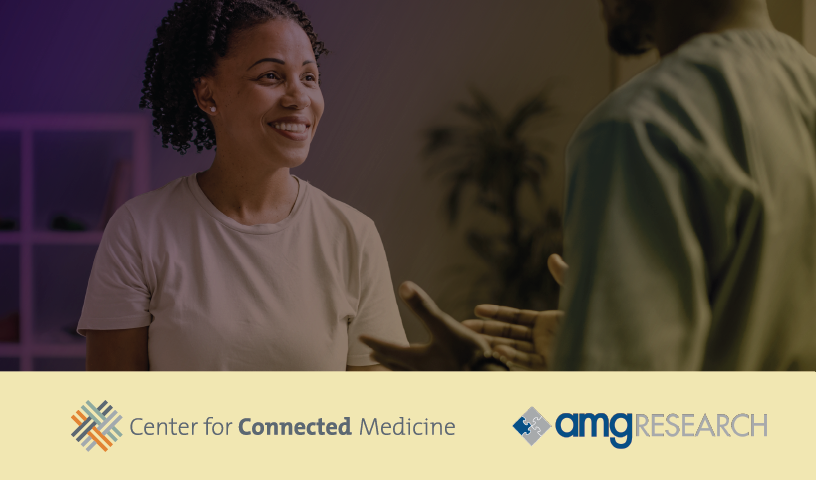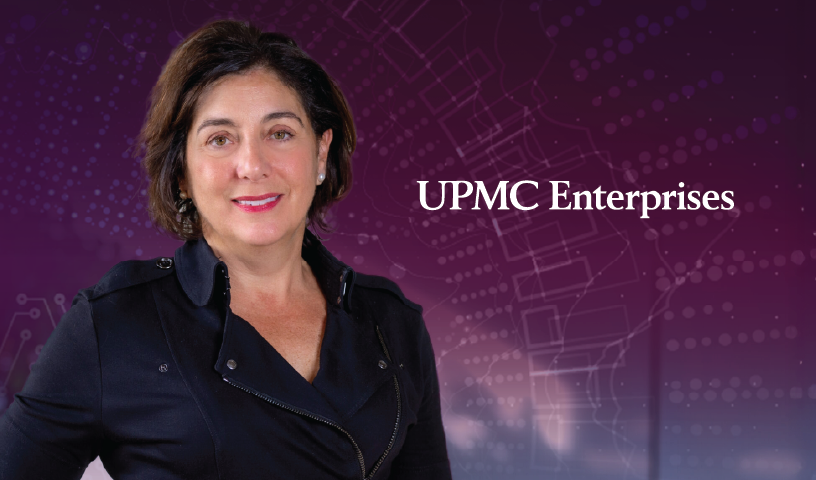Jun 25, 2019
Leslie Davis, Senior Vice President at UPMC, discusses her leadership style and her passion for improving the patient experience
On June 11, FLIGHT, the group for Female Leadership, Innovation, and Growth in Healthcare & Technology at UPMC Enterprises, organized a Fireside Chat with Leslie Davis, Senior Vice President, UPMC, and Executive Vice President and Chief Operating Officer, Health Services Division. The discussion was moderated by Jeanne Cunicelli, Executive Vice President of UPMC Enterprises, and the two spoke about the female perspective of leadership at UPMC, as well as shared personal stories about their journeys to success in their careers.
During the hour-long chat, Davis discussed the highs and lows of being a working mother, her biggest disappointments, as well as her passion for improving the patient experience.
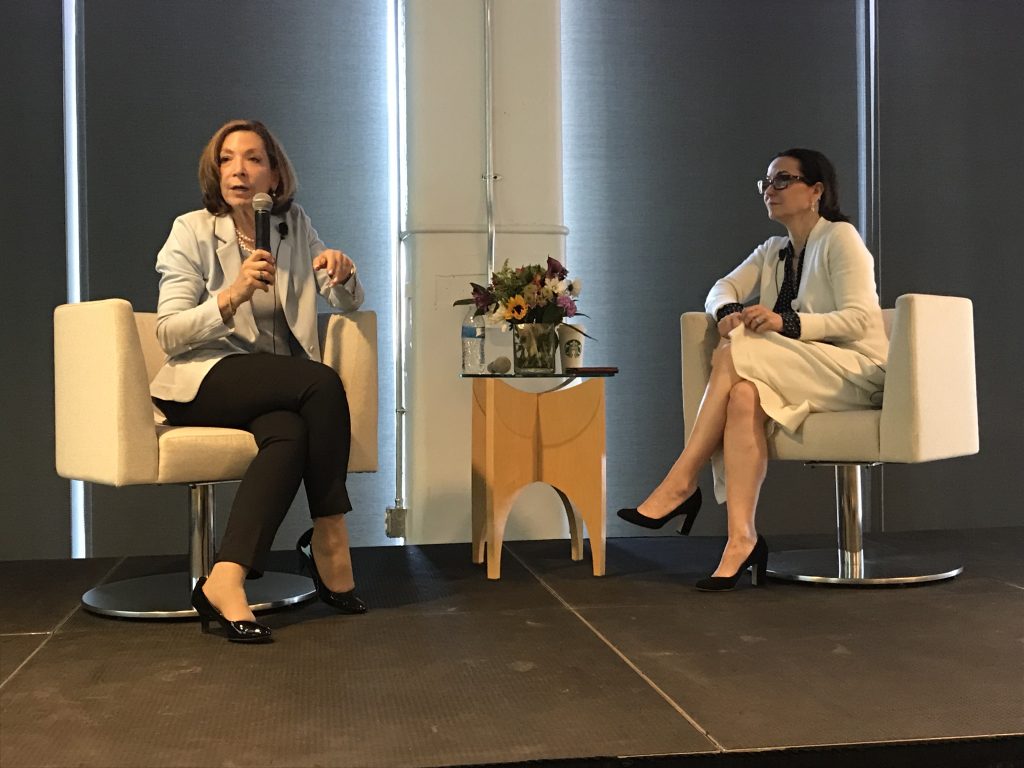
Davis began her career in elementary education, went to graduate school at Harvard, transitioned into the health care industry at Mt. Sinai, and eventually ended up in Pittsburgh at UPMC, where she has been for the last 15 years. When asked how to recognize the time to switch or change your career, Davis said, “You never really know. You have to listen to your gut, trust the people around you who care about you, and be willing to take a risk to find your calling.”
Her diverse career experience has made her an empathetic leader, and Davis makes sure to be in tune with her colleagues and sensitive to what they may be dealing with both at work and at home. Her management philosophy is about accepting diversity, leading with compassion, and recruiting people who work well within a team. “I think that being team focused, especially in health care, is so important,” Davis said.
Aware of the health care industry’s gender inequity at management and leadership levels, Davis appreciates UPMC’s culture of supporting and empowering female leadership. “We think about the workforce and how most nurses are female, and they’re able to move into these executive roles. So, we started making a very conscious effort to change the composition of the administrative fellowship program and to promote it in a much more conscious way. While we encourage the inclusion of everyone, we want this to be an opportunity to develop female talent in a multi-disciplinary way,” Davis explained.
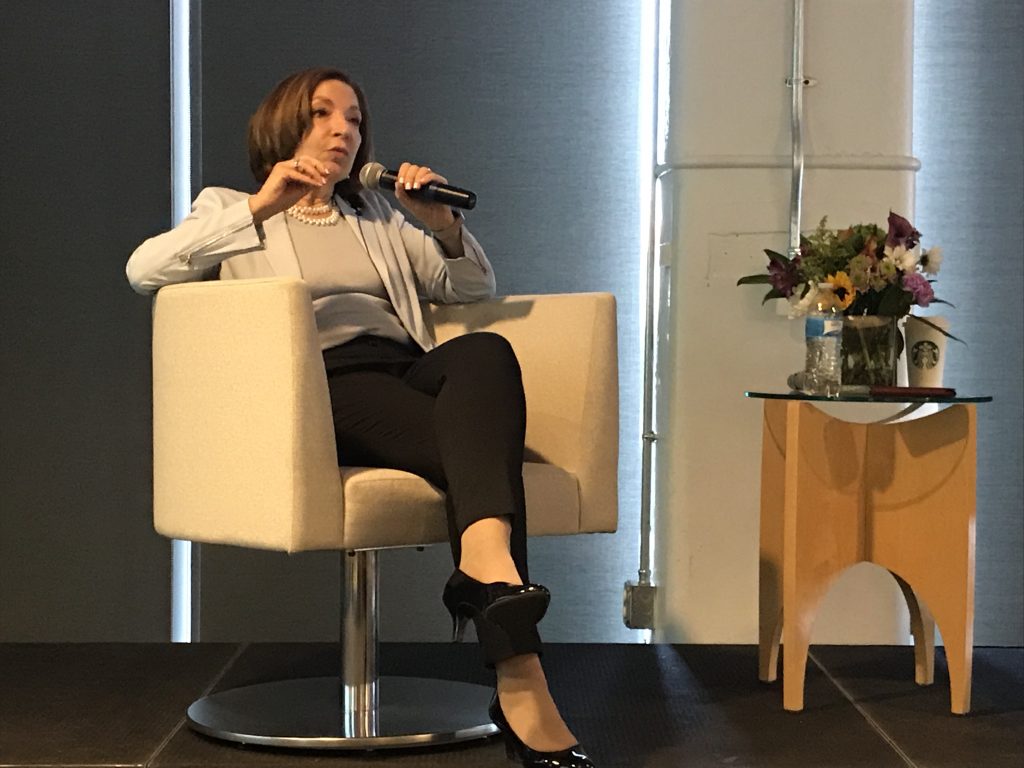
When asked about the trade-offs she has had to make throughout her career, she shared that, after initially struggling with a proper balance, “I had to accept that I couldn’t do it all.” Davis learned to balance her work life and personal life and to accept the limitations of juggling the two roles, explaining “I think it’s a matter of figuring out what people need. I figured out early in my career what I needed, and now as an executive, I try to figure out what the people around me need. Everyone is really different – it’s not one size fits all.”
Later in the evening, Davis took some audience questions. The first question asked her how she recovers from her failures. “I don’t like to call them failures; I’ve had some disappointments.” Davis continues, “I think it’s a matter of when I’m disappointed, I try to put myself in the shoes of those who have made the decision that disappointed me and understand their perspective.”
Davis also discussed how to pick yourself up again after a failure or disappointment, “It’s okay to have a minute; you can even have an evening. I think it’s important to do things that bring joy to your life, whether it’s athletics, or playing golf, or retail therapy.” Once you take a minute to decompress, it is important to jump back in and re-evaluate yourself to improve.
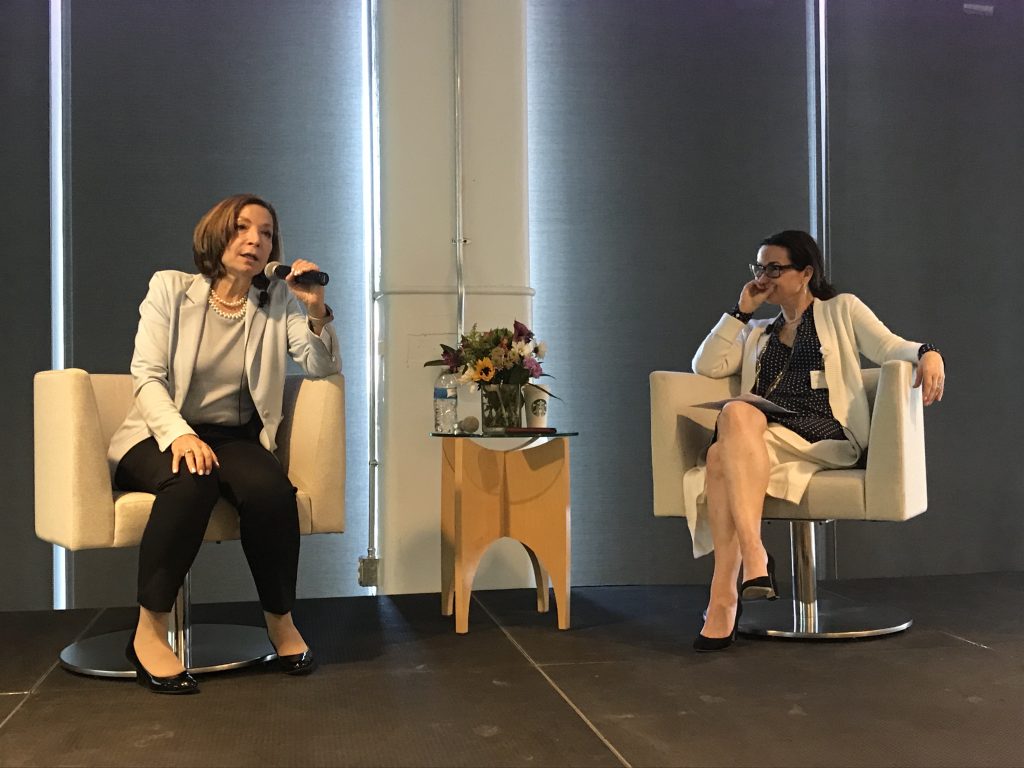
As the Fireside Chat wrapped up, Davis answered the final question, “What’s the biggest need you see in our industry? What should be a focus of the future?” After some thought, Davis answered the question by explaining her personal goal of focusing on the patient experience. She mentioned while this is a huge trend in health care, it is also her personal passion. She went on to explain that there is a lot of emphasis on reimbursement or payments, but at the end of the day it is all about “…pure patient experience, compassion, and coordinated care.”
Davis left the audience with this final thought, “We’re spending a lot of time measuring and creating common goals across all of our hospitals. There’s so much variation, even within hospital units, so we’re striving to standardize the patient experience. It’s a huge cultural shift.”

